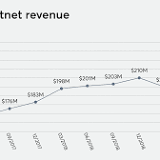Covid risks: High blood pressure, diabetes and heart problems boost chance of death in unvaccinated


Unvaccinated individuals with diabetes, high blood pressure or major heart problems are up to nine times more likely to die or suffer serious complications from Covid-19, a study of almost 49,000 people has found.
Those who were unvaccinated and had high blood pressure, diabetes or heart artery disease were found to be at up to three times greater risk of serious outcomes – including lung failure, admission to intensive care, kidney problems, and death. And up to 2.5-fold increased risk of other Covid-19 related complications.
When comparing the three medical conditions, individuals with diabetes were at the highest risk of developing severe lung failure. Prior to the emergence of Covid-19, these conditions were already known to be common predictors of heart attack and stroke.
Evidence of heart muscle damage – myocardial injury – at the time of admission to hospital was associated with a nine-fold increase in likelihood of death, researchers from Queen Mary University of London said after looking at 110 previous Covid studies.
Patients found to have such heart issues also had higher chances of developing other complications, including severe lung failure, known as acute respiratory distress syndrome, and acute kidney injury. They also required higher rates of intensive care admission and invasive mechanical ventilation.
Study author Dr Ajay Gupta said: “These findings present a strong case for these at-risk groups to be prioritised for vaccinations and other preventative measures. This is especially true in low and middle-income countries, where the impact of cardiovascular disease is particularly high.
“In more developed countries, groups with cardiovascular risk factors in addition to other vulnerable groups could be selected for booster and annual vaccination programmes, similar to the influenza vaccination programme.”
Successful vaccination programs have drastically reduced the social and economic burdens of Covid through altering the disease course and effective prevention of severe disease. But while more than 70 per cent of the UK population is “fully vaccinated”, less than 15 per cent of the population in low-income countries have received any doses of a Covid vaccine.
Accurate prediction of risk of severe disease and adverse outcomes of Covid helps prioritise vaccinations for the highest risk groups and enables effective planning of appropriate health and economic policies for resource-limited nations.
Dr Sher May Ng, one of the study authors from Barts Health NHS Trust, said: “These findings can help us identify unvaccinated individuals who are at a higher risk of worse outcomes, even without special tests. This is particularly relevant where healthcare resources are limited but the proportion of unvaccinated individuals remains high.”
The study is published in the journal Frontiers in Cardiovascular Medicine.


 United Kingdom
United Kingdom Argentina
Argentina  Australia
Australia  Austria
Austria  Brazil
Brazil  Canada
Canada  Germany
Germany  Ireland
Ireland  Italy
Italy  Malaysia
Malaysia  Mexico
Mexico  New Zealand
New Zealand  Poland
Poland  South Africa
South Africa  United States
United States 























